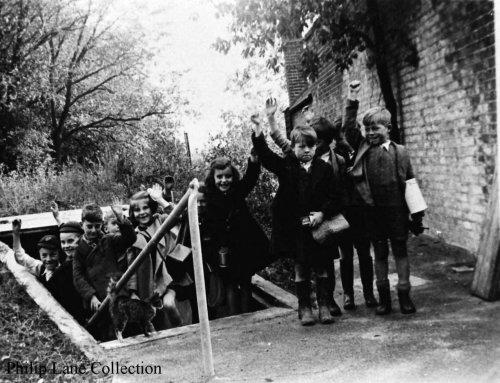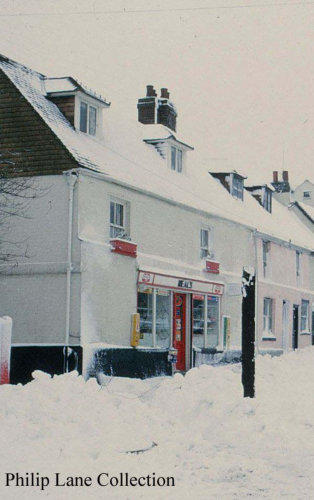
Chelsfield Village School 2013
The earliest Chelsfield School of which there is a record is mentioned (in
Cox’s Magna Brittanica of 1720) as “a small school for poor children”.
According to A T Waring’s “Parochial Notes” which date from 1912, this was
probably held in Kidders, “the upper room in this house [Kidders] runs the
whole length of the building and has been known as the schoolroom. Old
inhabitants in years gone by have stated that they went to school in this
room in their youth”.
There was school on the present
site in 1823, although the
present Chelsfield School was
not built until 1864, the first
building being outgrown.
In the early days the school
educated boys and girls
separately. The focus was on
reading, writing, arithmetic,
religious instruction and
household tasks for the girls.
Discipline was also a high
priority. Children would often
be absent in the summer to
help with work on local farms.
The reports of the Rev D F
Smith, diocesan inspector, make
interesting reading. They can
be found at Canterbury Cathedral Library, (for a fuller record go to
Sources).
In July 1851 Rev Smith remarked on the Master’s ability to command an
attendance of 49 out of 55 boys, given that fruit picking was at its height.
He was however critical of the progress in religious instruction although
writing was “good” and reading was “tolerable”. Discipline “is not what it
should be” but he blamed this partly on the over-crowded schoolroom. Of
the girls school, he said, “the needle-work is good, writing only tolerable,
and arithmetic as bad as can be. The lower part of the school is much
neglected, and wants a thorough management.”
Things improved by the inspection of 1854, when the separate boys and girls
schools had been amalgamated, and Rev Smith was able to report “The girls
in the 1st. class who attend more regularly than the boys are the best
instructed generally in Religious Knowledge. The writing and spelling are
creditable. The Reading will be better for secular class books, Maps have
been provided and the girls had a very fair knowledge of the outlines of
Geography. The children are neat and well-behaved, and the school
altogether is on a better footing.”
The new building was completed in 1864, and in the following year the
Inspector recorded that “ A handsome schoolhouse has replaced the old
one.”
We are fortunate to have transcripts of the School Log Book for the years
1883-1906, and 1906-1920. There is a brief introduction to the the Log
Books, and a link to the transcripts on our Chelsfield School Logbooks page.
In its early years the Village School was supported by subscription
(charitable donations) and by fees paid by pupils. By 1884 this was proving
too expensive for the pockets of the two or three subscribers, and a School
Board was formed to take on the responsibility.
In the early decades of the last century children walked to the school from
quite far afield in all weathers. The school was lit by paraffin lamps, and
heated by open coal fires, round which the children would drape coats and
gloves to dry on wet days.
One well-known Chelsfield resident, Miss Read (or Dora Saint to give her
real name), describes her experiences at the school from 1921 to 1924 in
her childhood memoir, entitled “Time Remembered”. Her account evokes
the village when it was a close-knit rural community, and sets out her
recollections of the school under Mr Clarke, a strict disciplinarian but also a
kind man who was generous in supplementing the meagre offering of the
school library with loans from his own private collection.
The young Dora had to walk a mile and a quarter from her house on
Chelsfield Hill to get to school and was adept at finding lifts from local
tradesmen: Mr Tutt the fishmonger, Mr Groom the Baker, and Hodsall’s heavy
corn chandler’s wagon. She revisited the school in 1975, and there is an
appealing account of this visit from the Daily Telegraph Magazine.
There is a detailed account of
the life of the school in the last
century by Carol Margetts, in her
“History of Chelsfield Village
School”. In her account Carol
remembers various individuals
who worked at the school in
different capacities, and gives a
clear picture of the daily pattern
for the children who attended
(including herself). The school
round differed somewhat for girls
and boys: in the 1920s and 30s
the girls were taken by van to
Farnborough Village School,
where they had rather strict
lessons in cookery and laundry
skills. The boys, on the other
hand, would go across to the recreation ground for cricket or football.
Carol also set out in the detail the type of work for which the school would
have prepared the children. Pre-war, they would have been expected at the
age of 14 to go on to farming, domestic service or family business, with
only a few (like Dora Saint) fortunate enough to continue their education.
After the war many more opportunities opened up, as manufacturing and
retail opened up in Orpington, St Paul’s Cray and St Mary Cray, and people
travelled further afield for work.
During the war, children continued to attend school, but had
their gas masks with them at all times and took cover in a
shelter during raids.
According to Carol Margetts’ account, on the first day of the
January term in 1969, the school had a new head, Mrs Lilian
Gilbert. The night before a huge snowfall landed on the village
and beyond, and for a while the only people to make it to the
school were Mrs Gilbert and the caretaker, Mrs Wingrove.
Eventually a group of children turned up in a trailer pulled by
a tractor belonging to a local farmer. During the day more
children trickled in and lunch was quickly contrived by
purchase of corned beef and other items from the village
shop. The snow persisted and Mrs Gilbert spent her first week
billeted with the school secretary in order to reach the school
each morning. A memorable first week.
Geoffrey Copus has transcribed extracts from the Diocesan
Inspection records of the School, from Canterbury Cathedral
Library, which can be found in full in our Sources section.
Chelsfield
A Community Archive
Chelsfield Village School






Kidders at Bucks Cross
- likely location for
early schoolroom.
Chelsfield Village School 2013.
The word “BOYS” can still be
made out by the door.
Chelsfield Village School
Cricket Team 1920
Children emerging from the
School shelter in the 1940s
Neal’s Store in the snow
Unless otherwise indicated on text and images, this website is protected by copyright under Creative Commons
Licence (CC BY-NC-ND 4.0). Click here for more information.



















